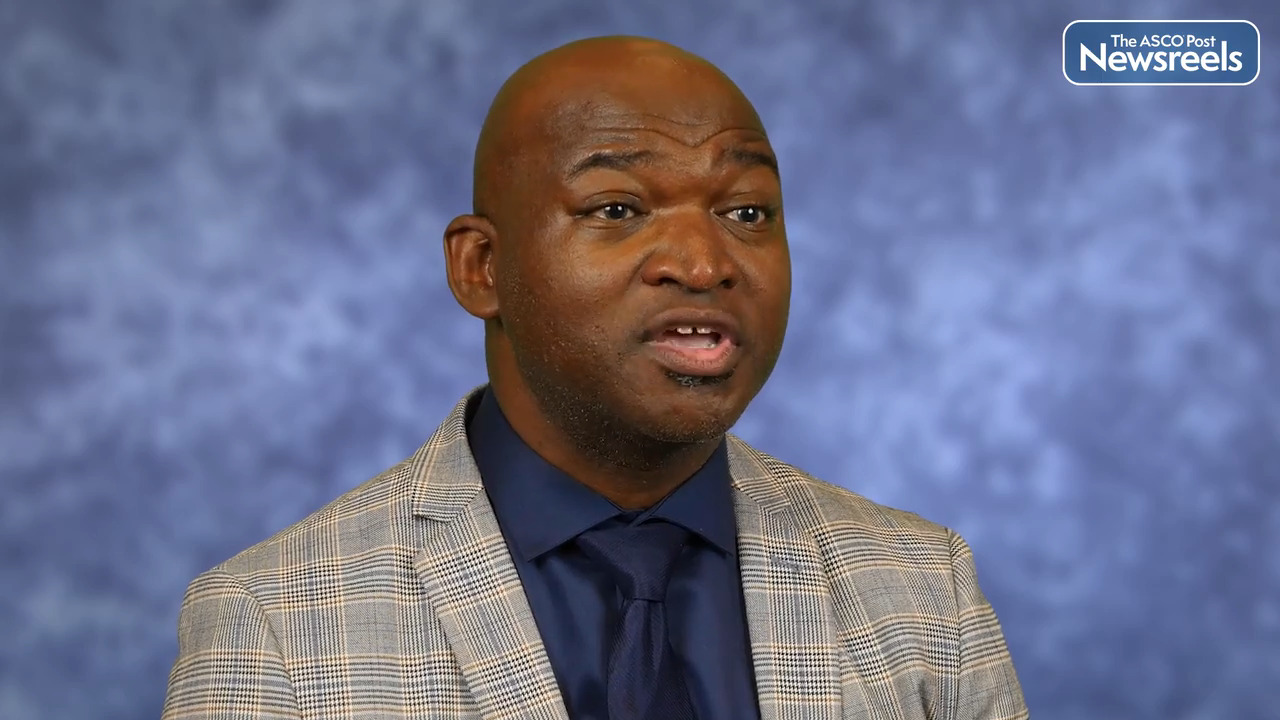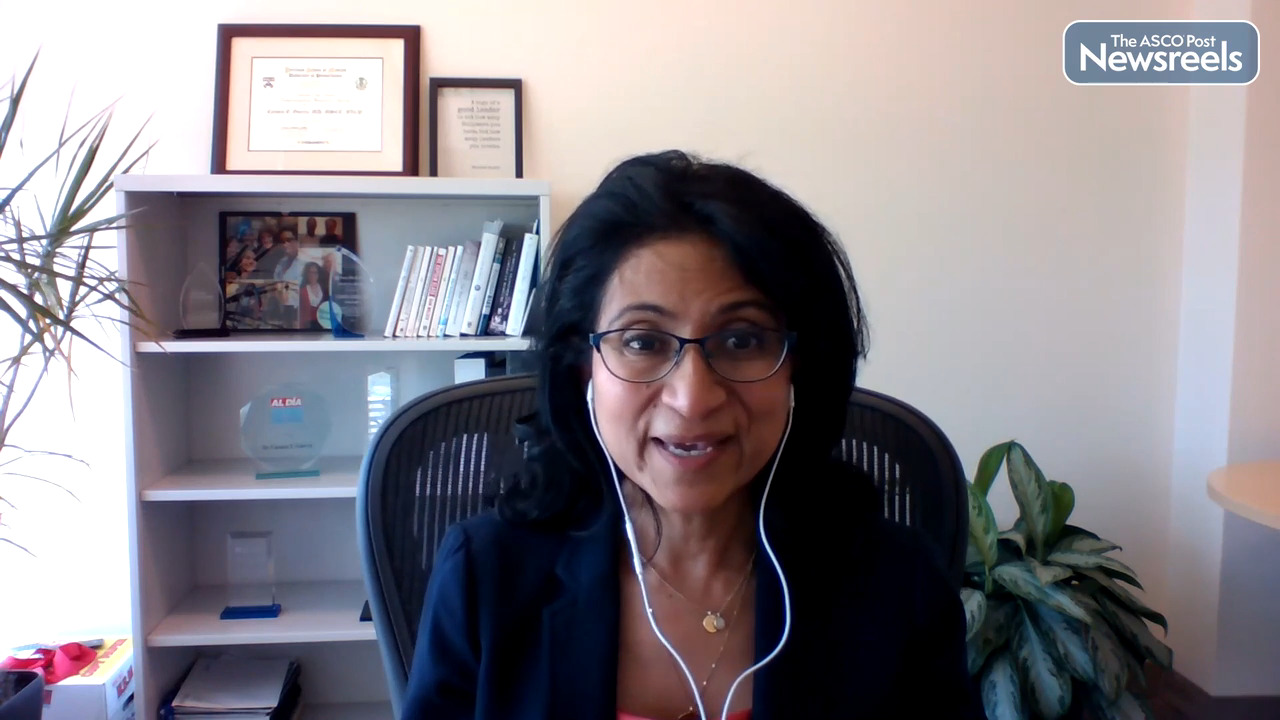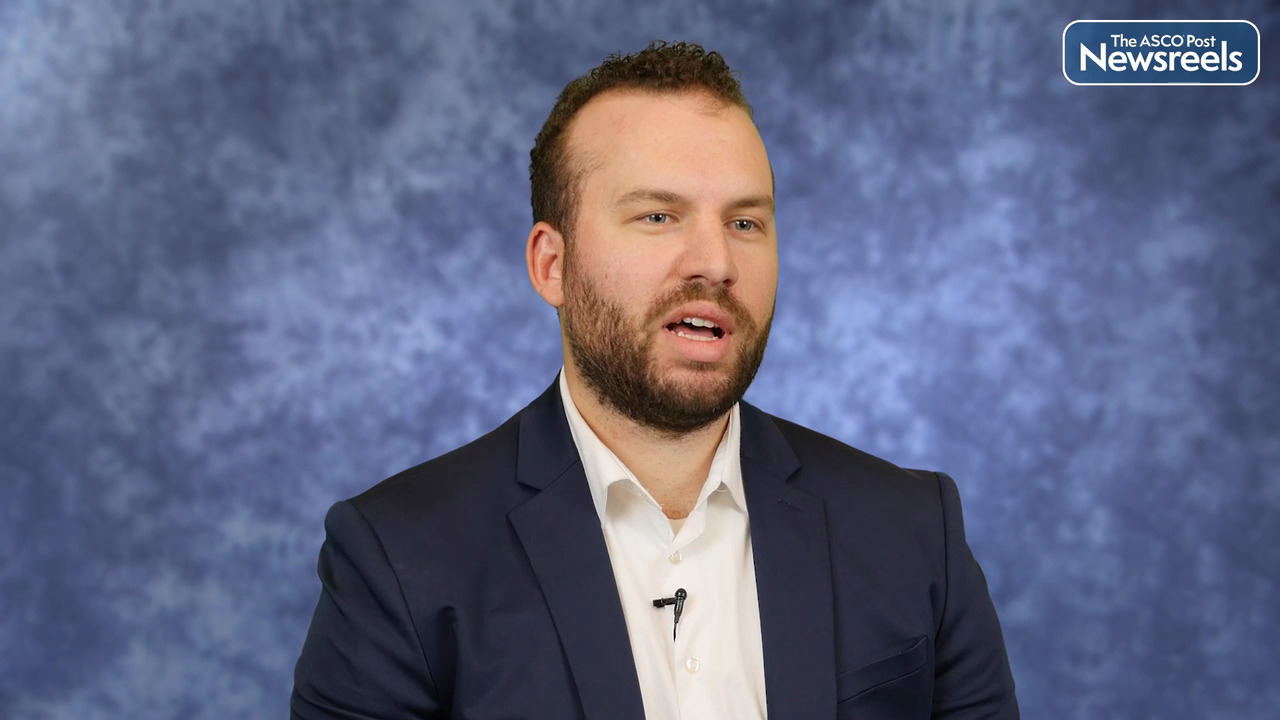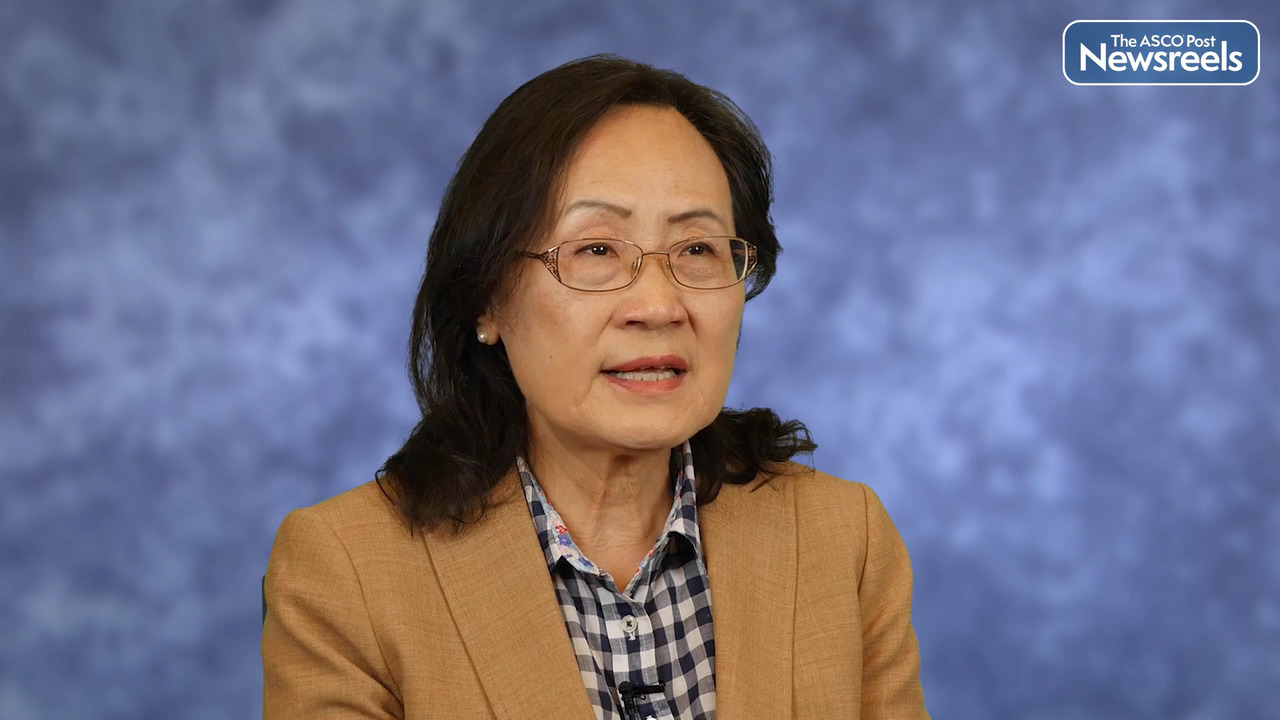Marcus O. Butler, MD, on Uveal Melanoma: Tebentafusp and Evidence of Tumor Response
AACR Annual Meeting 2023
Marcus O. Butler, MD, of Toronto’s Princess Margaret Cancer Centre, discusses evidence of tumor response in orbital lesions treated with tebentafusp in patients with metastatic uveal melanoma. Tebentafusp is a first-in-class novel bispecific protein, the first therapy to show superior overall survival compared with standard therapy for metastatic uveal melanoma. Based on these study findings, a role for this agent as a neoadjuvant treatment warrants further investigation. (Abstract LB 118/1)
Transcript
Disclaimer: This video transcript has not been proofread or edited and may contain errors.
Tebentafusp is approved for HLA-A*02:01 positive patients with uveal melanoma that is metastatic. It is the first drug to show an overall survival benefit for patients with this disease. Although local control of uveal melanoma is quite high, patients do develop metastatic disease and a small minority of patients will have recurrence of their disease in the eye or progression of disease in the eye. It is hypothesized that the immune privileged sight in the eye would result in a lack of activity of tebentafusp, because tebentafusp is a bispecific molecule which targets gp100-expressing tumor cells and CD3 T-cells to activate these T-cells. In this study, we looked at a pooled analysis of patients with uveal melanoma who had disease in the eye that was detectable as well as metastatic disease and were treated with tebentafusp.
We also assessed 37 tumors of the eye too and as well as metastatic lesions to assess gp100 expression antigen processing machinery, as well as CD3 and CD8 expression. Across the three trials, 12 uveal melanoma patients were identified who had detectable orbital lesions. Five of these patients had target lesions that were measurable. Four of these patients had responses to tebentafusp and one had stable disease. Interestingly, tumor shrinkage and stability of the orbital lesions was observed in patients who had progression of disease elsewhere. One of seven of the patients with non-target lesions showed a response and none had evidence of progression. Out of the seven non-target orbital lesions, none progressed with two achieving complete responses and five remaining stable. We also, in our translational studies, found that gp100 immunohistochemistry staining of the primary eye tumors was very high compared to metastatic lesions, and that antigen processing machinery continues to be expressed in these tumors.
CD3 and CD8 numbers, however, were generally lower in the eye, suggesting the immune privileged state of the eye. We also looked at adverse events occurring with tebentafusp in patients with measurable disease or detectable disease in the eye. There were five patients with adverse events and seven of the nine adverse events were intraocular local edema. None of the adverse events resulted in discontinuation of therapy. In conclusion, this analysis demonstrated a high expression of gp100 and antigen processing machinery, as well as low T-cell infiltration in primary tumors of the eye with uveal melanoma. Additionally, we saw activity where we saw tumor shrinkage in patients treated with tebentafusp in the metastatic setting. Most of the eye related adverse events were mild. This exciting preliminary data suggests that tebentafusp may have activity for primary tumors and neoadjuvant studies as well as adjuvant studies are being planned and are soon to be conducted.
Related Videos
The ASCO Post Staff
Karriem S. Watson, DHSc, MPH, of the National Institutes of Health All of Us Research Program, discusses the importance of engaging in clinical trials for those who are underrepresented in biomedical research. Community engagement is a proven and effective tool, Dr. Watson says, to enhance participation in research by increasing access to and awareness of medical studies and has already been shown to expand the reach of therapies, improving cancer outcomes. (Abstract PL03-05)
The ASCO Post Staff
Carmen E. Guerra, MD, MSCE, of the University of Pennsylvania Abramson Cancer Center, discusses the ways in which community outreach, programs to help patients access cancer clinical trials, and institutional policies such as ASCO’s Just Ask program can help increase equity, diversity, and inclusion in cancer clinical trials and reduce unconscious bias.
The ASCO Post Staff
Christina M. Dieli-Conwright, PhD, MPH, of Dana-Farber Cancer Institute, discusses her research on the ways in which postdiagnosis exercise, particularly resistance exercise, can build strength and muscle mass and affect cancer outcomes. She also describes her focus on biomarkers related to body composition, inflammation, metabolic dysregulation, and cognition—all influenced by exercise.
The ASCO Post Staff
Harry Klein, PhD, of Dana-Farber Cancer Institute, discusses MatchMiner, a software platform launched in 2017, that matches patients with appropriate clinical trials of targeted therapies. The platform uses data on the genetic features of a patient’s cancer, as well as clinical data, to identify trials at Dana-Farber for which the patient might be eligible. MatchMiner can also help recruit patients who meet the trial’s eligibility requirements. (Abstract 1067)
The ASCO Post Staff
Sherry X. Yang, MD, PhD, of the National Cancer Institute, discusses findings from the TAILORx trial, which showed that, despite chemotherapy, patients with high recurrence scores continue to have a poor prognosis. This result suggests the need to develop new management strategies for patients with early-stage breast cancer. (Abstract LB119)





